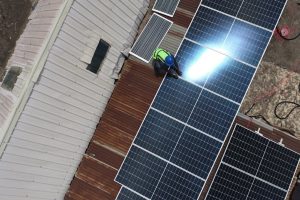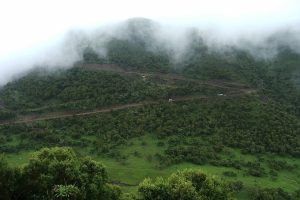Nowadays, vaccines inequality is being manifested between developing and developed nations on the grounds that producers give prominence to the latter with a view to ending the COVID-19 pandemic at the earliest possible time. It is no secret that in the present climate, the second wave of the pandemic is claiming the lives of thousands of people in the length and breadth of the world despite various nations have been taking a wide variety of swift measures to tackle the problem and making their people breathe a sigh of relief once and for all.
However, some developed nations have been taking the pandemic into control owing to their economic muscle that can do anything under the sun. Unfortunately, most of the developed nations are not seen overcoming vaccine inequality in the midst of the poor nations. The number of COVID-19 vaccines being administered between the poor and the rich nations are entirely very different. As the gap between the developed and the developing ones is very wide, it cannot be bridged after a short time.
Regarding the growing gap between the developed and developing nations, Tewodros Adhanom, WHO Director-General, blasted the growing gap between the number of coronaviruses vaccines administered in rich and poor countries, branding the inequity a global “Moral outrage” according to France 24 report.
The WHO tore into wealthy nations now vaccinating younger people at low risk of developing COVID-19 disease, bluntly saying they were costing vulnerable people’s lives in low-income countries.
The director went on to say, “It was “Shocking” how little hand been done to avert an entirely predictable catastrophic moral failure” to ensure the equitable distribution of vaccines worldwide. The gap was growing every single day, and becoming more grotesque every day. The inequitable distribution of vaccines is not just a moral outrage. It is also economically and epidemiologically self-defeating. Some countries are racing to vaccinate their entire population while other countries have nothing. Rich countries were giving themselves a false sense of security.
More than 455 million doses of COVID-19 vaccines have been injected in 162 territories around the world. Some 56 percent of the doses have been administered in high-income countries accounting for 16 percent of the global population. Just 0.1 percent has been administered in 29 lowest-income countries home to nine percent of the global population. The Covax global vaccine-sharing scheme ensures that 92 of the poorest economies in the world can ac access vaccines doses with the cost covered by donors. It has so far distributed more than 31 million does to 57 countries.
According to information obtained from CNN, it was nothing short of a miracle when it became clear that scientists had developed several effective vaccines against Covid-19 in less than a year. Announcements last week from European Union and British drug regulators finding a possible link between AstraZeneca’s Covid-19 shot and rare blood clots, however, have been a real low point in the pandemic.
This isn’t only because developed countries, like those in Western Europe, had purchased a large number of AstraZeneca doses to dig their way out of the pandemic but, more consequentially, because so much of the developing world was relying on this one vaccine to do the same.
The double blow is that a picture is emerging that the AstraZeneca vaccine — which appears to have caused a very rare, sometimes fatal, condition of severe clotting with low blood platelet counts — may be affecting younger adults more than the elderly. Developing countries, in general, have significantly younger populations than their wealthier counterparts.
And to add insult to injury, just as Africa was pivoting toward the single-dose Johnson & Johnson vaccine, US medicines regulators on paused use of the J&J shot across the country as well, after just six cases of the same clotting symptoms were reported among nearly 7 million people who had been given the vaccine. One of those cases was fatal. The company itself paused its rollout across Europe.
The African Union had already ordered up to 220 million doses of the J&J shots to be shared among its 55 states in the third quarter of this year. That’s on top of any shots it may get through the COVAX scheme.
A link between the rare blood clots and J&J’s vaccine has not been officially confirmed, but US officials want to pause it and use alternative shots while they work out if there is indeed a connection, and if so, how prevalent it might be. Europe is waiting to see what an investigation finds.
But much of the developing world doesn’t have that luxury. New type of vaccines based on mRNA technology — like the Pfizer/BioNTech and Moderna shots vaccines widely used in the US — are typically three to four times more expensive than the AstraZeneca shot, which is being manufactured on a not-for-profit basis, or the J&J shot, considering that vaccine requires just one dose. Pfizer, however, is offering these vaccines at lower prices to the African Union, Reuters reports.
Many developing nations are having to wait longer than wealthier countries to receive these vaccines. In earlier stages of their development, mRNA vaccines needed to be kept at such cold temperatures, most developing nations couldn’t use them without purchasing new, expensive equipment to store them. Those requirements are improving — the Pfizer vaccine can now be stored at normal freezer temperatures when being transported — but the storage challenge months ago meant that most developing countries focused on shots like AstraZeneca and J&J when making purchase agreements with drug companies.
Concerning vaccines inequality, Aljazeera reported that richer countries hoarding excess doses, preventing poorer ones from getting vaccinated this year. South Africa, India and more than 100 other nations have called the World Trade Organization (WHO) to temporarily waive patents for COVID-19 vaccines, saying they are being prevented from immunizing their people.
The two countries first made the appeal in October last year, calling on the WTO to waive provision in a trade agreement governing intellectual property rights so medical products can be more easily accessed by developing nations. More than 100 nations have since joined the calls.
Endorsing request for a waiver, WHO Director-General Tedros Adhanon Ghebreyesus said earlier this month: “If a temporary waiver to patents cannot be issued now, during these unprecedented times, when will be the right time?”
At the core of the discussions stands a proposal submitted in October by South Africa and India to suspend the WTO’s agreement on Trade-Related Aspects of Intellectual Property Rights (TRIPS) for the duration of the coronavirus pandemic.
The goal is to facilitate the transfer of technology and scientific knowledge to developing countries to ramp up the global production of vaccines and other necessary equipment.
Last month more than 400 organizations in the United States joined forces calling on President Biden to endorse the waiver, which 115 members of the European Commission issued a declaration urging the European Union to drop its opposition to the temporary suspension.
According to a campaign group called ONE, richer counties are hoarding excess doses of COVID-19 vaccines and buying one billion more than their citizens’ need, which prevents poorer nations from getting vaccinated this year. This huge vaccines excess is the embodiment of vaccine nationalism, with countries prioritizing their own vaccination needs at the expense of other countries and the global recovery, “said ONE in a report last month.
ONE’s policy team added “ a massive course correction” in distribution was needed if the world wanted to protect and save lives as the death toll from the pandemic approaches 2.5 million.
UN Secretary-General Antonio Guterres said last month just 10 countries had so far administered 75 percent of all vaccinations, describing it as “wildly uneven and unfair”.
At least 130 countries have not yet received a single dose of a COVID-19 vaccine, said Guterres. At this critical moment, vaccine equity is the biggest moral test before the global community,” he added.
Doctors Without Borders (Medecins Sans Frontieres, or MSF) staged a protest at the WTO against what it said was the rich world’s reluctance to waive patents and allow more production of COVID-19 vaccines for the poor nations.
Activists seeking the waiver of intellectual property rules want the terms of the TRIPS agreement to be overridden to allow generic or other manufactures to make the new products.
BY ADDISALEM MULAT
The Ethiopian Herald 30 April 2021





